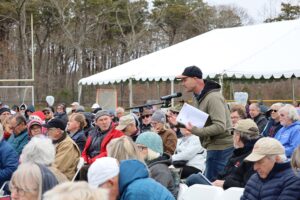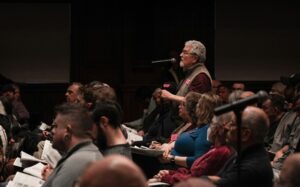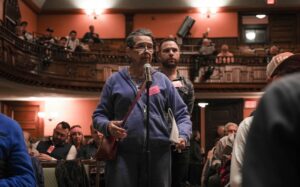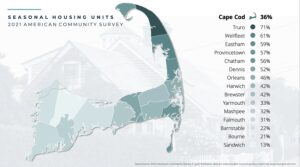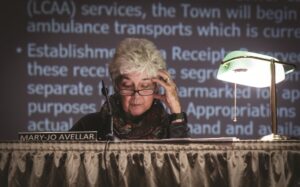EASTHAM — At this year’s town meeting, voters will be asked to approve the creation of a special education stabilization fund to help support expenses at the town’s elementary school. If it is endorsed by voters on May 5, the fund would cover unexpected spikes in the amount of special education funding that state laws require the town to pay.

On Feb. 11, the school committee unanimously voted to request that the fund proposal be added to the town meeting warrant. Nauset School District Supt. Brooke Clenchy said that Wellfleet would have a similar measure on its warrant this year.
“This is something we should be looking at, especially for single municipalities,” Clenchy told committee members. “If you have some difficult times — which Eastham has had — you have nowhere to go but back to your taxpayers every year.”
At last year’s town meeting, voters overwhelmingly approved a $1-million Proposition 2½ operating override to cover unexpected costs in the school budget. While $600,000 of that was due to an increase in Eastham’s share of the student body at Nauset Regional High School and Cape Cod Tech, $335,544 was to cover the out-of-district placements of three Eastham Elementary School students requiring special accommodations.
“When you’re looking at out-of-district programs, you’re looking at both tuition and transportation,” Clenchy told the Independent. “The problem with small schools is that if you get one or two of those children, and you have a small budget, it sends your budget through the roof.”
The state law that allows for special education stabilization funds was passed in 2016 so that towns could build up reserves to cover “unanticipated or unbudgeted costs of special education, out of district tuition, transportation, and recovery high school tuition.”
Funds in the reserve can be transferred out only after a majority vote by both the select board and school committee. Funds can be added to the reserve from certified free cash or a year-end budget surplus.
“Eastham, in all honesty, hasn’t really been in the position to have that extra” at the end of a budget year, Clenchy told the committee. “But you have to start somewhere, even if you just put two dollars in.”
School Budget Cuts
Finalizing the budget for the fiscal year that begins on July 1 has been a challenge for the school committee. The first version of the budget, proposed at the committee’s Dec. 13 meeting, totaled just over $4.8 million — an increase of $380,392, or 8.6 percent, over the previous year.
By its Jan. 13 meeting, the committee had reworked the budget down to $4.7 million — an increase of $273,392, or 6.2 percent.
By the Feb. 11 meeting, the budget was down again, to $4.6 million — an increase of $174,133, or 3.9 percent.
Much of that savings is based on “staff resignations and retirements we feel are on the horizon,” said Nauset Public Schools Finance Director Giovanna Venditti, adding that she had discussed those resignations with elementary school Principal William Crosby. The rest of the savings came from a reduction in custodial services during the summer.
Committee member Debra Raymond asked if Venditti could elaborate on the staff attrition, but Venditti said she was “not at liberty to discuss” it. “We’ll have more information for you at the next meeting” on March 18, Venditti said.
Principal Crosby, who was also at the Feb. 11 meeting, told the committee that the elementary school would “still continue to provide the same services that are in place now.”
Clenchy said the budget cuts were harsh but necessary.
“It’s bare-bones, and now we’re cutting at the bones,” she said. “That’s what this feels like to us right now. But we also know what our community’s appetite is at a 6.16-percent budget. It wasn’t a number we could live with, so it’s our job to go back and get it as close as we can to something the town is comfortable with.”
Clenchy said the town was “incredibly gracious” for approving the $1-million override in 2024 — especially since it came after a $160,000 operating override for the school budget in 2023.
“The bottom line is, we couldn’t stay at 6 percent,” Clenchy said.


